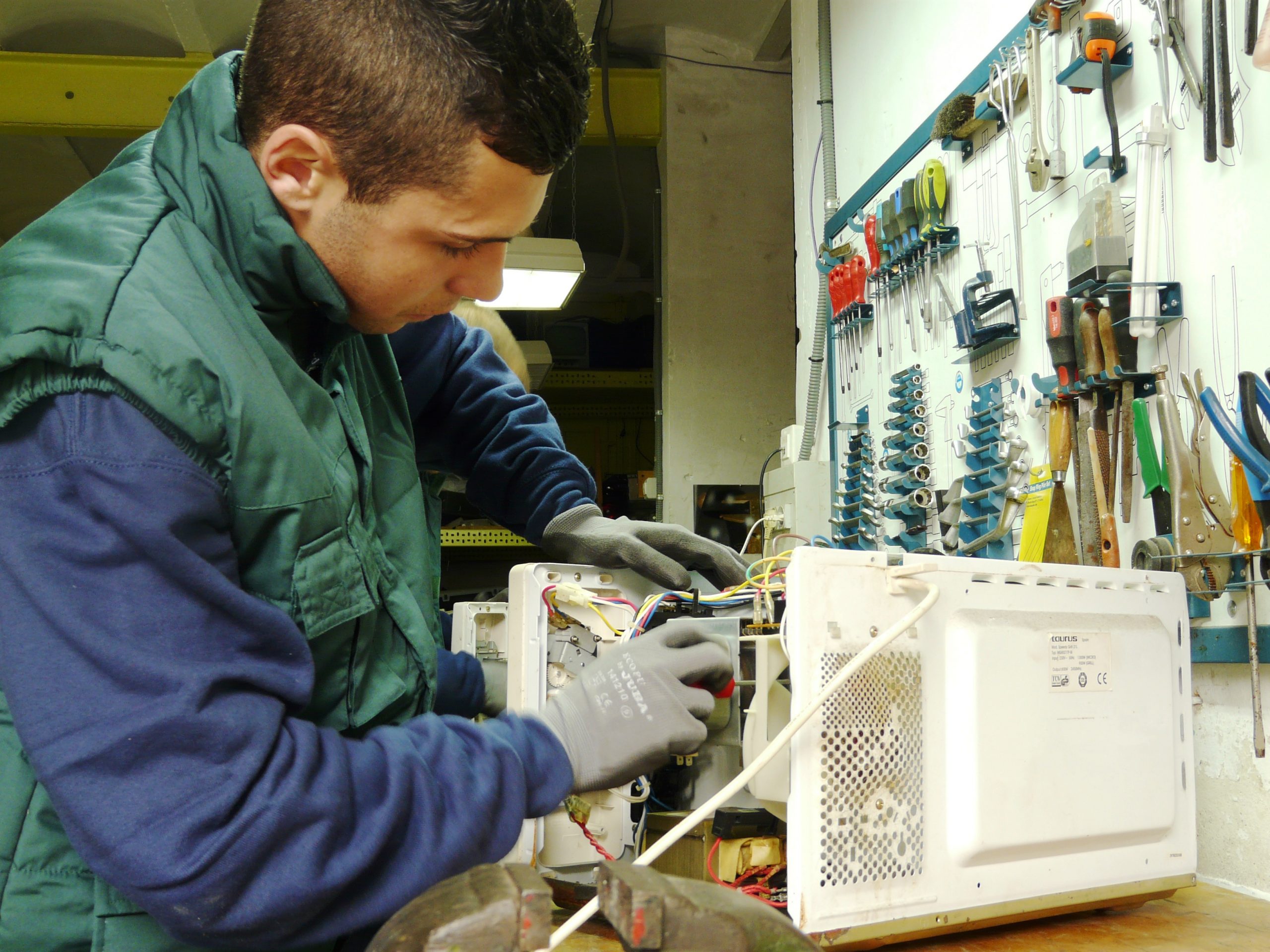After having persistently pushed and advocated for measures facilitating repair[1], the RREUSE office optimistically welcomed the European Commission’s newly adopted EU Ecodesign regulations on 1 October 2019[2].
As of 2021 and for the very first time, the measures require manufacturers to produce longer-lasting products and provide professional repairers with spare parts up to 10 years after the purchase date. Added to that, spare parts will need to be replaceable using common tools and without damaging the product. These regulations will apply to a wide-range of household appliances including lighting devices, TVs, fridges, washing machines and dishwashers.
Down the line, the EU should see a considerable reduction of goods ending up as waste in landfills as well as reductions in natural resource extraction and greenhouse gas emissions. As the EU Commission Vice-President for Jobs, Growth, Investment and Competitiveness, Jyrki Katainen mentioned[3], “Figures speak for themselves: these measures can save European households on average €150 per year and contribute to energy savings equal to the annual energy consumption of Denmark by 2030. It is with concrete steps such as these that Europe as a whole is embracing the circular economy to the benefit of citizens, our environment and European businesses.”
This legislative effort is also on point considering the necessity to strive towards a fair green transition. Indeed, improving the repairability of products will help create jobs in the repair sector, composed of social enterprises, among others. Their activities are essential in helping people at risk of socio-economic exclusion gain skills they can valorise on the job market.
While this is indeed a very hopeful and welcome first step, EU legislation does need an extra nudge. Along with the “Right to Repair” campaign[4], RREUSE will continue to push for these regulations to:
- Include a wider range of electronic goods such as smartphones and computer
- Enable individual consumers to easily access spare parts, freely access repair manuals and thus, fix their own goods
- Detail the definition of professional repairers to ensure independent repairers (not authorised by manufacturers but in line with the legislation framing their activity) also have access to spare parts and repair information
[1] RREUSE (2017) Position Paper on reduced taxation to support re-use and repair (available here); RREUSE (2018) Opinion: Making products repairable and reusable, Next step for an inclusive circular economy (available here); RREUSE (2019) Opinion: Repairing electronics shouldn’t be rocket science (available here)
[2] European Commission (2019) New rules make household appliances more sustainable (available here)
[3] European Commission (2019) New rules make household appliances more sustainable (available here)
Picture credit
Press contact:
Kelly Piron, Communication and Advocacy Officer, ke*********@rr****.org


